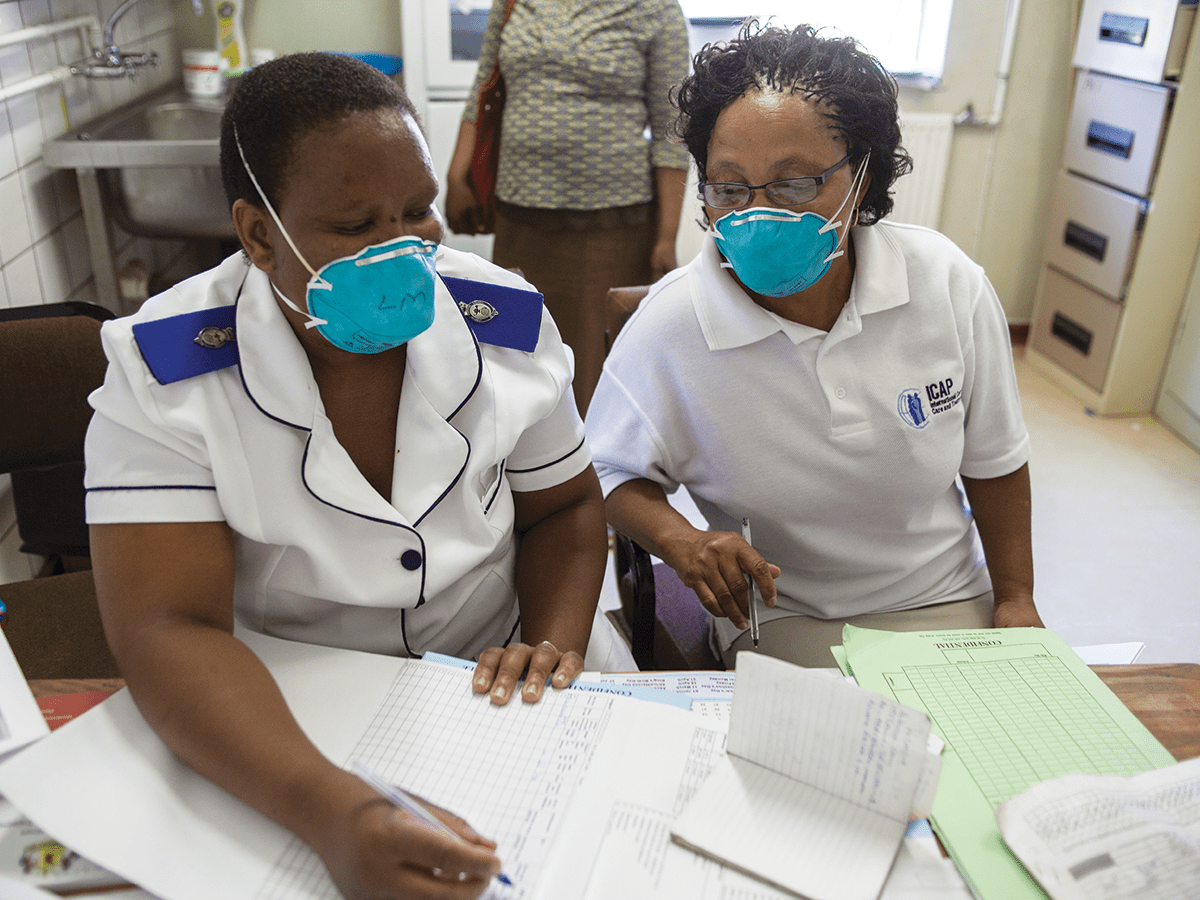With new funding from the U.S. President’s Emergency Plan for AIDS Relief (PEPFAR) through the U.S. Centers for Disease Control and Prevention (CDC), ICAP at Columbia University is expanding its successful efforts to improve health systems in Central Asia, Lesotho, and South Africa. Working closely with ministries of health and other stakeholders, ICAP will leverage its experience strengthening health systems in high-HIV burden contexts with an emphasis on human resources, service delivery, information systems, and leadership and governance. This funding promises to improve health outcomes for populations deeply affected by the HIV epidemic, while enhancing health systems responsiveness and resilience.
Linking People Who Inject Drugs to Lifesaving Health Services in Central Asia
In Central Asia, ICAP has worked since 2011 to support countries in the region in responding to the HIV epidemic. Now ICAP is expanding its critical work in the Kyrgyz Republic and Tajikistan to strengthen HIV testing, treatment, and support services key population groups, with a special focus on people who inject drugs and their sex partners
Improving Critical Health Information Systems in Lesotho
Since 2014, ICAP has worked in close partnership with Lesotho’s Ministry of Health to build a digital health management information system, now routinely used at all major health facilities to monitor progress in provision of health interventions, identify gaps in care, and evaluate impact in real time. With the additional funding, ICAP will continue efforts to strengthen data analysis and data use. Additionally, ICAP is expanding the use of electronic individual-level databases at health facilities to digitally track individual patients across health facilities.
Human Resource Capacity Building in South Africa
With new funding, ICAP aims to support the country’s fast-track HIV response and its ambitious commitment to end the country’s AIDS epidemic by 2030. As part of this work, ICAP will develop national training materials in collaboration with South Africa’s Department of Health rigorously evaluate community health outreach interventions. This effort will build on ICAP’s prior efforts to support the nursing workforce in the country and to enhance the role of nurses’ in the HIV response.
“By bringing together cutting-edge scientific health knowledge and years of on-the-ground experience between both of our organizations, it’s clear that ICAP’s partnership with the CDC is bringing a new level of intensity in our shared goal of eliminating HIV transmission,” “This new funding allows ICAP to design and deliver critical innovations in health service delivery to improve the quality of life for people everywhere living with HIV,” said Dr. Wafaa El-Sadr, founder and director of ICAP. “Strong health systems are the foundation of healthy communities”.
A global health leader since 2003, ICAP was founded at Columbia University with one overarching goal: to improve the health of families and communities. Together with its partners—ministries of health, large multilaterals, health care providers, and patients—ICAP strives for a world where health is available to all. To date, ICAP has addressed major public health challenges and the needs of local health systems through 6,000 sites across more than 30 countries. For more information about ICAP, visit: icap.columbia.edu








